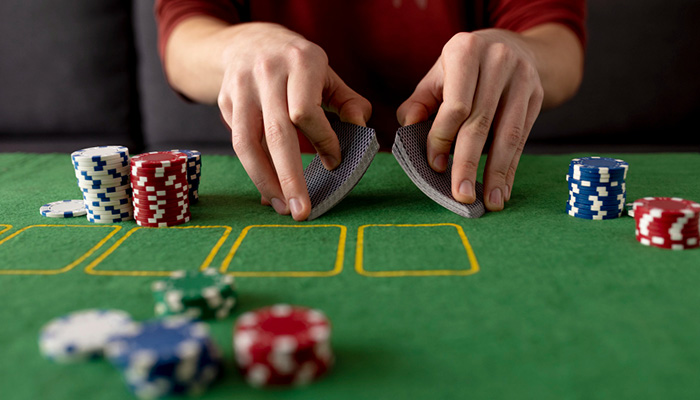Gambling often starts out of curiosity. Winning against the odds can provide the player with an instant high or adrenaline rush. Players soon get addicted to this feeling and enjoy it, but just as it takes you high, losing a game would ruin their mood. It may result in mixed feelings such as anger, frustration, bitterness, depression, and fear of losing. It will soon seep in and interfere with their personal and professional lives. Once it becomes a habit, it could turn into an obsessive condition called pathological gambling or compulsive gambling. Pathological gambling is considered a psychological disorder. Treating pathological gamblers is important, as it could help them restrain themselves from impulsively engaging in gambling, leading to mental, physical, financial, and social instability.
Pathological gambling
Pathological gambling, also known as compulsive gambling or disordered gambling, is a mental disorder that is characterized by an intense urge to gamble despite having experienced negative consequences. Symptoms may include going to extreme lengths to gamble, like committing a robbery or getting into a physical fight to win it. Another symptom of disorder is the restlessness or irritability one experiences while trying to cut back on gambling habits. Gambling may become a gateway to other associated unhealthy habits, including drinking alcohol or smoking.
Causes of pathological gambling
It is found that men start to gamble more regularly early on than women. Typically, men start in their adolescent years, while women start in their 20s–40s. Becoming a pathological gambler starts with indulging occasionally, and later on, with repeated participation, it turns into a habit. Some of the factors that make you a compulsive gambler are:
- Family history and genetic factor also plays a major role in making a person pathological gambler. If a person has a family members already engaged in pathological gambling, then he is more likely to become a pathological gambler himself. Pathological gambling, or gambling disorder, is found to run in families. This means that if a parent is addicted to gambling, it is possible that the child may also inherit that disorder.
- Impulsivity is an important factor. If your level of impulse control is high then you are less likely to develop such addiction.
- Researches show that ineffective coping with difficult situations may result in developing such habit.
- Most of the pathological gambler are shown to exhibit antisocial behavior.
- Depression also plays a major role in developing such habits.
- Other risk factors includes – gender, age, socioeconomic status, stress, and family history.
Treating pathological gambling
Most gamblers only seek help when their family or friends pressure them, if they have gone through a lot of financial loss, or if they experience psychological instability. Most compulsive gamblers deny having any problem with gambling or that it is affecting their daily lives in any way.
This disorder is treated with therapy (cognitive behavioural therapy), medications, or by joining self-help groups. The most effective treatment is cognitive behavioural therapy (CBT), which involves changing the thoughts and behaviours that are fundamental to the behavioural pattern of the habit. This treatment exposes you to the skills that can help reduce your urge for gambling and helps identify unhealthy or negative beliefs with healthy, positive ones.
Anti-depressants and mood stabilizers are given to treat the emotional damage that occurs due to gambling, such as depression and anxiety.
Preventing and coping with craving for gambling
After undergoing the treatment, another big hurdle that gamblers face is the urge not to restart it. However, some may give in without proper management of the craving. To stop yourself from indulging in gambling, first understand the problem and know your triggers. Avoid meeting people who gamble, and remember the negative consequences you have already faced and the struggles it took to overcome them. Identify your thoughts and feelings carefully and deal with them. Find healthy alternatives in place of the gambling habit to engage yourselves. Acknowledge your progress and regconize the benefits of stopping gambling.
At a single stretch, it might be difficult to quit gambling. However, even if you slip, give yourself a chance repeatedly to identify the mistakes and work towards recovery. Do not give up.
Gambling is never healthy!
Gambling odds are designed to work against you. So, if you or someone dear is addicted to gambling, find ways to help yourselves or them. Be patient enough to overcome the cravings and never forget the negative consequences they have on a person’s overall well-being. Remember that every addiction can be treated with proper measures, and never give in to disbelief or negativity.
Taking the right support and keeping yourself surrounded by family, friends, and an overall healthy environment can help you make healthy choices for yourselves.




